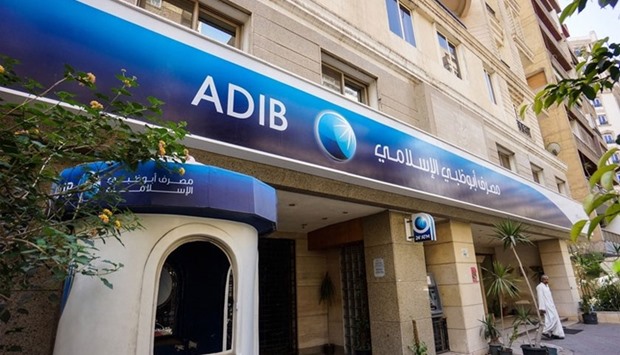* Q2 profit 507.5 mln dhs vs 502.6 mln dhs yr ago - statement
* Bank forecasts modest customer financing
* ADIB reduces headcount by 110 in second quarter
Abu Dhabi Islamic Bank (ADIB) warned on Thursday it was restricting the amount of new credit it was extending due to an increase in defaults across its business lines.
The message from the emirate's largest Islamic bank is perhaps the most stark yet of the impact on the banking sector in the United Arab Emirates from reduced government spending as a result of lower oil prices.
This came after the bank posted a 1 percent rise in second-quarter net profit to 507.5 million dirhams ($138.2 million), a result which beat the forecasts of analysts at EFG Hermes and Arqaam Capital.
It came on the same day another Abu Dhabi lender, Union National Bank, reported a fourth successive quarter of lower earnings due to the difficult market conditions.
In a statement announcing ADIB's results, Chief Executive Tirad al-Mahmoud said it remained concerned about the levels of economic activity and growth in the region and in the world's major markets.
"Our concern is further exacerbated by the rising levels of defaults in an increasing number of client segments and industry sectors in the markets in which we operate," said Mahmoud after the bank set aside 234 million dirhams as provisions for bad loans in the second quarter, up 33.6 percent year on year.
"As a result, we continue to forecast modest new customer financing growth and, where credit extension is targeted, will continue our practice of only doing so in such a manner that the risk related returns are commensurate with our long-term regulatory capital needs and return of shareholders equity goals."
Net customer financing stood at 79.7 billion dirhams on June 30, up 6.9 percent year on year but only 1.6 percent higher since the end of 2015.
Income from traditional banking practices was 982.3 million dirhams, up 6.9 percent on the same three months of 2015.
The bank's earnings received greater support from its income from investments and foreign exchange, which grew 28.2 percent to 204.3 million dirhams and 16.1 percent to 43.7 million dirhams respectively.
As part of its cost-cutting measures, the bank reduced headcount in the UAE by 110 to 2,349 in the second quarter of 2016, it said.

